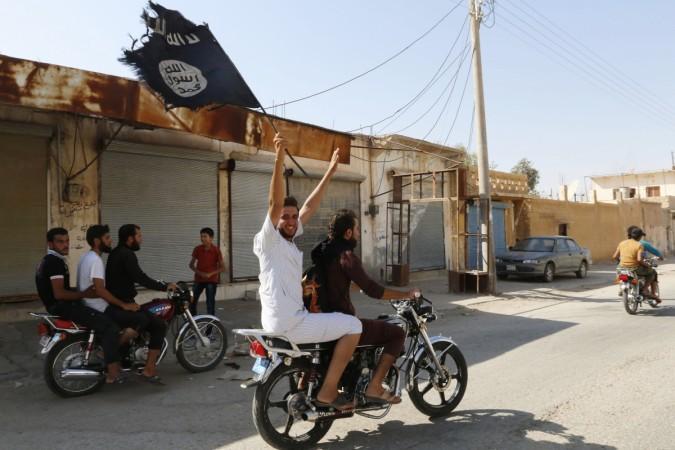
The gory goings-on under the Islamic State in the Middle East may seem far away from India, but the notorious terror outfit's influence has managed to reach the Indian shores, and is fast growing, even as the government watches from the sidelines.
The US government has cracked the whip on terror sympathisers and recruiters for the IS and Indonesia, a predominantly Muslim country, has banned the Sunni jihadi outfit.
However, in New Delhi, the authorities are yet to draw up a framework of action against the fast-spreading terror network.
When news broke that three Mumbai youths were looking to return home from Iraq the Indian authorities appeared clueless about how to deal with the terror collaborators since the militant outfit is not yet banned in India.
Three youths from Kalyan had left for Iraq to fight with the Islamic State, and have indicated that they will return home soon.
"Since the outfit they are allegedly working for is not banned in India, no action can be taken against them," a security official told The Times of India.
The Islamic State has been banned by the United Nations. Several countries including Germany have banned any propaganda for and by the jihadist group.
Indonesia, which has the largest Muslim population, has ordered a ban on the Islamic State, and is cracking down on Youtube videos and other Internet forums, a popular tool of the IS to reach out to the youth.
On Tuesday, the United States indicted a New York resident of aiding the Islamic State and arrested him, slapping seven serious charges, including those of supporting a foreign terrorist organisation and threatening to kill US officers.
US Federal Authorities slapped serious charges on York resident Mufid A. Elfgeeh after it was found that he collaborated with the Islamic State and helped recruit fighters from the US.
In contrast, large-scale recruitment for the terrorist group is going on in India, with videos being released by the group in Hindi, Tamil and Urdu. Many men have also reportedly left the country to join the terror outfit. Indian citizens are being radicalised in their very own home cities and exported to fight a foreign war, among the ranks of some of the world's most dreaded terrorists.
One the of Indian fighters for the cause of IS jihad, Mumbai youth Arif Majeed, reportedly died in clashes in Iraq last month.
Again in last month, a bunch of youths from Hyderabad were caught trying to cross over into Bangladesh to further make their way to join the outfit. However, when they returned home, all they received was a counseling session.
The youths revealed to the police that many other boys are being radicalised by the IS through 'closed groups' on Facebook, which left intelligence agencies scampering to figure how these social media outlets can be checked.
In a recent study by The Soufan Group on foreign fighters going to Syria, it was reported that while 'some of the foreign fighters may not return as terrorists to their respective countries, all of them will have been exposed to an environment of sustained radicalisation and violence with unknowable but worrying consequences'.
The study listed India as among the 81 countries from where fighters have travelled to Syria over the last three years.
It further goes on to say that 'advances in technology, communications, travel, and tactics (from a decade of fighting in the region) mean that even a very small percentage of returning foreign fighters could have a major impact on their homelands'.
How seriously India is looking to deal with IS returnees is anybody's guess, given that it is yet to form concrete steps to ban the outfit, crack down on Internet forums and deal with terror campaigns with the help of stringent laws.
According to reports, in a late move the government is purportedly planning to ask the National Investigation Agency to file FIRs in the case of Indian youths leaving to join the Islamic State. The move is based on the UN Security Council Resolution 2170 that has placed the ISIS under terror sanctions, Hindustan Times reported.
This could be a promising first step to address the issue of radicalisation of Indians by the IS. However, the important question is if the Modi government will act faster to list the group under banned terror outfits under the Unlawful Activities Prevention Act (UAPA).
There are reports that suggest the issue has turned complex for the government because dozens of Indian labourers are held captive by the group in Iraq.












